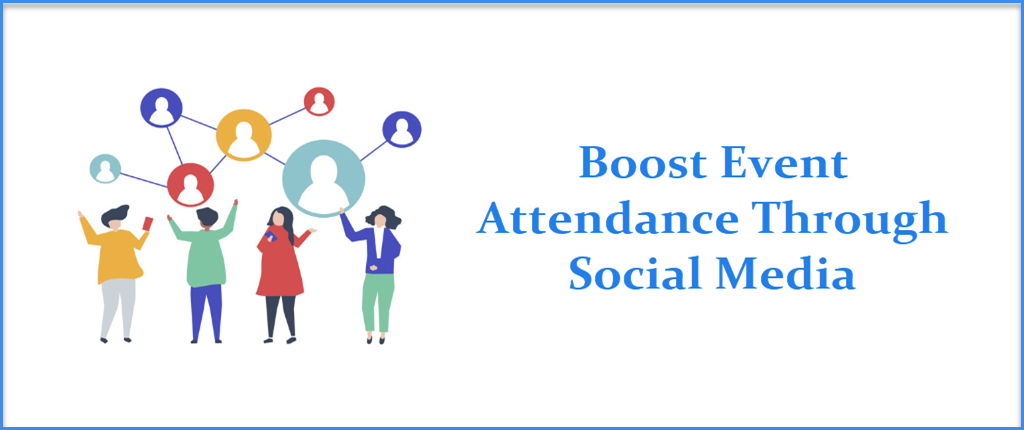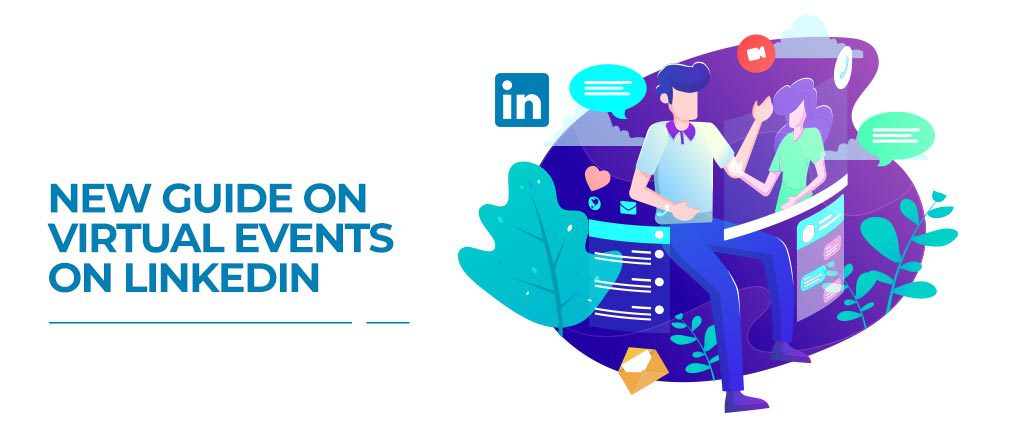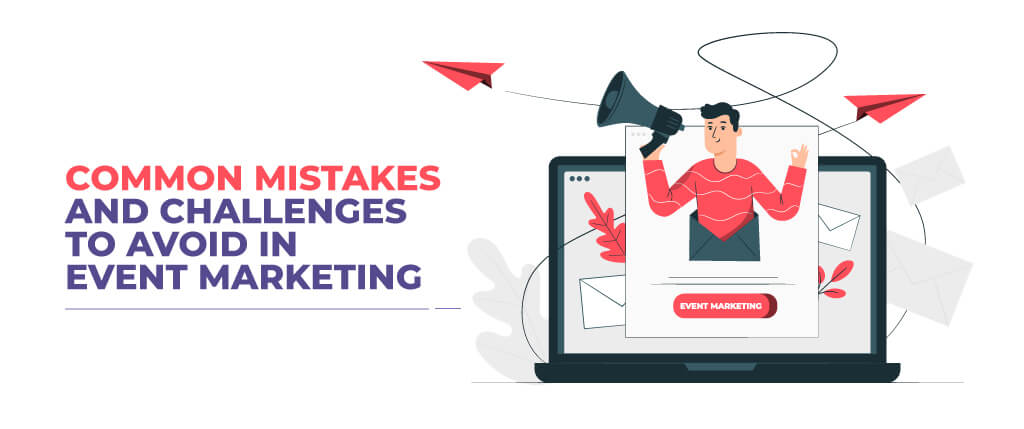Planning an event can be overwhelming at first. However, with the right strategies and people in place you can make your event a great success.
Once you plan what your event’s purpose is and sort the logistics involved, the time is right to move on to Event marketing – the very core of a successful event!
You really need to put some thought behind your marketing strategy, be it an offline or online event.
Event marketing begins with the launch of an Event MVP to persuade attendees to invite their friends or colleagues and attracting a steady pipeline of leads through channels such as email marketing, blogging, and advertising.
Now think of a plan!
From the moment the idea to host an event is conceived in your head to the point that the event actually takes place, an event marketing strategy is required for the different stages, target audience and platforms to promote your event.
But before we dive deep into our subject, let’s be on the same page about what exactly is an event marketing strategy, and what’s its purpose?
An Event marketing strategy is all about raising awareness of your event. You want to direct potential attendees and previous attendees into your marketing funnel so that you can inform and advise them as they make the journey towards buying a ticket.
Here are a few marketing tactics that are needed for a successful event:
Pre-event page
Too many people forget they can create an event page and make it live to capture early interest, even if all of the details aren’t yet finalized.
This not only enables you to capture the details of people without wasting any time but also helps you to improve SEO and build your authority in advance for your major marketing push.
Here are a few ways to drive traffic to your pre-event page:
- Release early bird promo codes Tier your registration release dates to target certain groups of attendees Look into your email analytics or marketing automation system to understand which days/times your audience is more likely to open emails from you. Send your event invites these days.
Share with the Media
At this stage, you need to have an event hashtag sorted and the hype should begin on Social Media.
Don’t forget the huge range and diversity that social media brings to you now. Facebook, Twitter, and LinkedIn will all remain important depending on what kind of event you run but consider Instagram, Snapchat, Pinterest, YouTube, Tumblr, Medium, Reddit, Quora and others too.
Even a Press Release is a great way to get the attention of the people who can help you further reach your event goals. With a formal press release, you invite local media to be a part of your event.
Press releases can also be used to promote the landing page and social media hashtags for your event, find potential influencers for further promotional opportunities, and to reach an audience outside of your normal marketing channels. A single press release may reach thousands of journalists and news outlets. This is especially great when the goal of your event is to spread awareness and invite influential people.
Bonus!
Here are a few tips on writing a good press release:
- Copy the press release into the body of your email – journalists today prefer to be able to read the release as part of the email. This saves them time and will increase your story’s visibility. Add an introduction line – personalize the introduction for every journalist and their publication. This will make them more likely to scroll down and read your press release. List the basic details of your event – keep things simple to help the journalist pluck out the key information easily.
Thought leadership and guest posts
Marketing on your site is important, but you need to go beyond it in order to find new attendees. The best way to do this is through guest posts or to create pieces of thought leadership on social media that others will be happy to share.
With thought leadership marketing you collaborate with the big names of your domain. This gives you a good amount of exposure in the press and your brand gets high visibility. This helps you increase your customer base too.
For conferences and B2B events, it’s relatively straightforward as you can create an industry report that combines top tips from all your speakers.
Market to your audience using email
Email marketing campaigns continue to be the most effective means to reach out to your consumers and invite them to an event. The perfect event promotion strategy always includes an email marketing component.
Also, are you hosting multiple events in a close time frame to each other? Want to save on time making emails for each event?
Just put all those into one email. It’s going to be a little cramped, but that’s where the strategy to simplify and find the right message that fits all the events is the real solution, and it’s not an impossible one.
Litmus did it and promoted multiple events in one email.
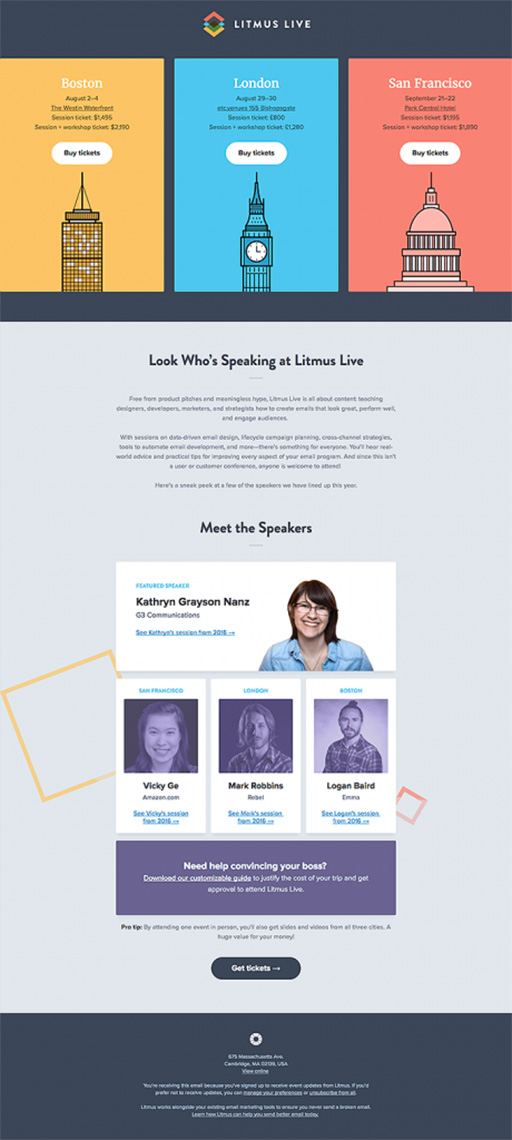
With your event now ready for prime time you should get your first major email blast out to your potential attendees, including those who pre-registered.
Spark FOMO (Fear Of Missing Out)
Contrary to popular belief, people are more interested in an event when they feel they will lose out on something valuable if they don’t attend.
Create the “Fear Of Missing Out” among your audience. Use content like video or imagery to show them how they will be at a loss if they don’t attend “You don’t want to miss this event” is a simple but effective email marketing subject line, social media campaign or blog post to generate curiosity about your event.
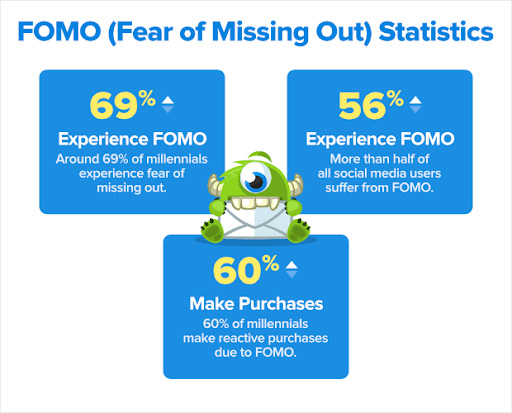
A lot of data suggests that FOMO is most prevalent among millennials. Around 69% of millennials experience the phenomenon, and according to Strategy Online, 60% of millennials make reactive action because of FOMO. In other words, they will attend your event just because they feel they might miss out.
Cold Calls
To employ telesales teams is expensive, and only effective if you’ve got a great inbound marketing program to support them with lots of fresh, warm leads.
However, that doesn’t stop you from picking up the phone yourself!
If you’ve noticed that a few of your targeted attendees or some of those pre-registered leads have still not bought a ticket, why not give them a call?
Ask if there’s anything you can help with? Do they have any questions? It doesn’t have to be a hard sell, but it’s much harder to ignore a phone call than an email or one of a thousand tweets on their timeline.
You’ll probably find it’s a relatively time-intensive but effective way of securing a few more sales if they’re needed.
These Event marketing strategies allow you to make an impact building up to the event, and continue the momentum for your business or nonprofit even after.
Use this opportunity to show people that their needs and priorities are at the top of your mind and you will ensure no stone is left unturned in giving them what you offer.
Start planning your next event and use these event marketing strategies to make it highly successful.

